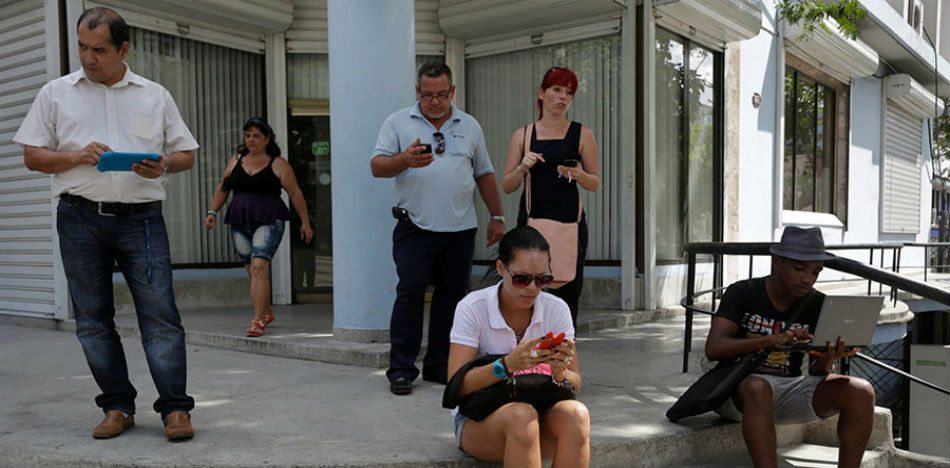EspañolThe notion of a socialist country having a profitable and sustainable economy may be the most flagrant myth I’ve ever heard in my life. You’d have to be a hypocrite to actually believe in such a thing.
How can a society prosper when its citizens are essentially living as slaves with near-absolute dependence on a tiny governing elite? Such is the unfortunate case in Cuba, where President Raúl Castro has ruled since 2006.
On the island and abroad, socialism exists as an inefficient mode of governance partly because it removes a primary factor in creating widespread prosperity: private property. Just look at a simple aspect of life that so many of us outside of Cuba take advantage of: internet.
Internet remains illegal on private residences in Cuba, but the government has slowly been loosening regulations since 2007 by opening up wifi hotspots on some parts of the island. More recently, the government has designated areas called “navigation rooms,” which allow even more residents to make use of public internet. Or at least, that was the idea. Such a “dream come true” rarely lasts under socialism.
The updated price for an hour of internet access is supposedly 1 CUC (US $1). That’s equivalent to 25 CUP, which is also equivalent to about two days of work. Internet isn’t accessible to the average worker, let alone a retiree, for even one hour. The people can barely afford to live off their salaries and pensions, let alone pay for internet.
That 25 CUP per hour is really only good for one half an hour after taking into account slow connectivity and loading times. That’s two days of work for 30 minutes of internet access.
The only other option is to go to a navigation room, like the one called La Fuente on 51st Street in the capital municipality of La Lisa. Best-case scenario, you lose half an hour or so waiting for a connection. The state feels entitled to take its time and to interrupt connections as it pleases, making the notion of open internet access nothing more than an illusion.
The inefficiencies of Cuban internet do not end there, unfortunately. La Fuente only has three machines, one of which has been out of service for over two months, meaning that you often have to spend hours waiting in line for your turn. What happens when the best navigation room — the Miramar Business Center — suffers major problems?
- Read More: “Sonic Attacks” in Uzbekistan Suggest Russian Involvement in Similar Cuban Incident
- Read More: Increased Internet Access in Cuba Sheds Light on Systematic Repression against Dissidents
After Hurricane Irma, many of the machines at Miramar fell out of service, causing long lines to form outside while the damaged machines were being repaired and replaced. To this day, some of them remain out of service.
Another issue that has affected Miramar for over a month is a shortage of chairs for customers, an inconvenience that is inconceivable and frankly unacceptable. If it’s this bad in Havana, the capital, imagine trying to get internet in other, more rural areas of the island.
It’s the same story every time a socialist government tries to offer a service. Governing dictators still have the nerve to talk about prosperous and sustainable socialism. What’s worse, there are still people who support them.
What hurts me the most is that the people, despite their suffering, don’t have the courage or intellectual honesty to speak out against the Castro regime or the sad and twisted conditions that it has created.
Until next time.
 Versión Español
Versión Español













